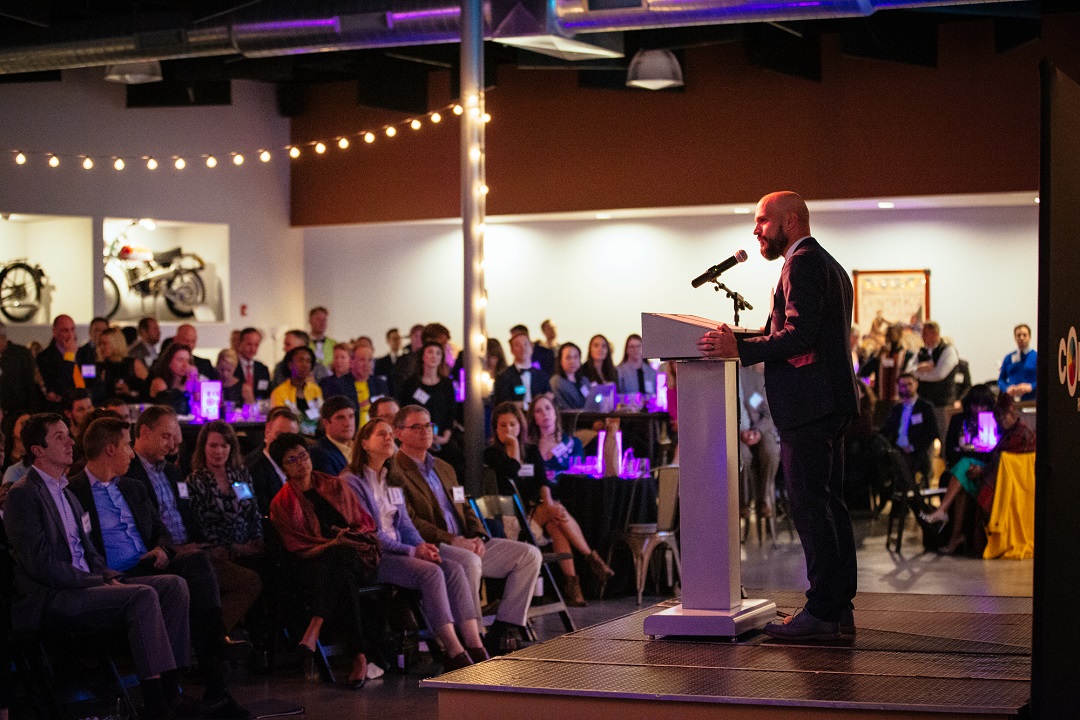On Wednesday, November 6, Trailnet announced its heightened priority to increase safety for people who walk, bike, or use public transportation.
City of St. Louis Mayor Lyda Krewson said enhanced, multi-modal transportation systems have shown to improve quality of life in cities that have taken steps to prioritize people over cars, adding St. Louis is poised for this type of effort.
“When it’s safe and easy to walk, bike and, use public transit, those are great places to live,” Krewson said. “That’s what I want for St. Louis.”
Krewson added making St. Louis streets more accommodating can have a positive ripple effect on the region’s general public health.
“One of the highest transportation priorities that we have is the safety of people walking,” Krewson said.
Scott Ogilvie, Transportation Policy Planner with the City of St. Louis’ Urban Design Agency, was the keynote speaker for the event. Ogilvie spoke about how city streets weren’t always as car-centric as they are today, noting there was a time when streets operated more as public spaces.
Ogilvie (pictured above) spoke about the upcoming Louisiana Calm Streets project, which is a direct result of Trailnet’s effort to educate local leaders on enhanced street design that prioritizes people over cars. Ogilvie said the project will use designs that slow down traffic. Part of this strategy uses landscaping to physically separate people from cars.
“One mile of Louisiana Avenue, in the first phase, will be re-envisioned as a slow street where people can be comfortable and safe using the street for more than just transportation,” Ogilvie said. “This project grew directly out of a trip Trailnet organized to Portland for elected officials, residents, and city staff in 2015.”
St. Louis County Executive Sam Page also spoke at the event, describing Trailnet’s involvement in connecting people to the city and county through planning for bicycling and walking infrastructure.
“Decisions we make today have a lasting impact,” Page said. “If we are able to make those decisions in ways that support sustainability efforts for the region, they become an even greater achievement still.”
Ogilvie closed by saying that the pursuit of calmer, safer streets is on everyone.
“My job is to ask for more. But I need that to be all of our jobs,” Ogilvie said. “We all need to ask for more. Walking is essential. To engineer away our ability to walk is to steal away part of our humanity… Number one is slow down the cars. Number two: allocate more space for people – reallocate space away from the automobile and to people. And number three: put things closer together. When things are close together, you decrease the need for transportation in the first place, and make life a lot easier if you don’t, can’t, or don’t feel like using a car.”
Trailnet has a 30-year track record of advocating for better walking and bicycling in St. Louis. Trailnet educates civic leaders and public works staff who make decisions about street design and street purpose. The organization helps communities plan safer street networks.
To learn more, go to Trailnet.org.


Leave A Comment